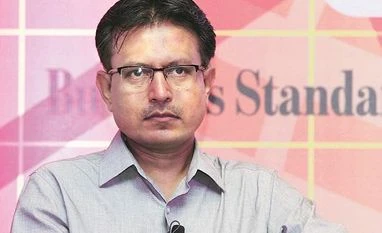Nilesh Shah, managing director of Kotak Mahindra Mutual Fund, has been in fire-fighting mode, explaining investors the rationale behind the move to not invoke the shares pledged by Essel group promoters. In an interview to Samie Modak & Jash Kriplani, Shah says the choices made are in the best interest of unitholders. Edited excerpts:
What’s the feedback by investors on your decision?
Every single investor we have reached out to is on board. For those who are criticising us, I’d like to request them to show us a better alternative.
One view is that fund houses had sufficient cover and should have sold the pledged shares...
That’s a fair argument; it’s what the custom is. In case of an event of default or delay in interest payment, or decline in margins, lenders can invoke the pledge and sell the shares to recover dues.
In the case of Essel group, the burning question before lenders was whether the pledged shares should be invoked and sold to recover dues. MFs had Rs 7,500 crore worth of exposure, including Rs 378 crore of Kotak MF. NBFCs had Rs 4,000 crore of exposure and overseas lenders had another Rs 2,000-crore exposure. If all lenders had invoked the pledge and sold Rs 13,500 crore worth of shares, the question would have remained as to whether dues would have been realised or whether we would have received a sustainably lower amount.
We decided that if we sell the shares, there was a low possibility of recovering the dues. All of us would have converted a notional loss into an actual loss. Back then, the promoters also disclosed they are in talks with strategic investors to sell stakes in Zee Entertainment and Dish TV.
They said if we are not the owners of the firm, the buyers won’t engage with us. We needed to ensure the market that there won’t be a garage sale. Around 85 per cent of the lenders present in the meeting said there was no point in invoking the pledge; rather, a six-month extension should be given to the promoters.
As part of the revised agreement, we got the personal guarantee of Essel Group Chairman Subhash Chandra.
We also got an upside on a graded basis in case of a strategic sale in Zee, Dish TV or Essel infra. We opted for that choice. The other option of selling the shares would have resulted in a lower recovery.
Why didn’t you inform investors earlier?
On January 26, an understanding was reached with the lenders. After that, we were negotiating with the promoters of Essel. All the agreements only materialised on April 7. In absence of any material agreement with us, I was not in any position to communicate with investors.
Why did you opt for repayment as opposed to rollover?
By repaying maturity of principal in almost all the cases, barring one, the investor is best to decide where to park the additional money. The course taken by one of my peers to rollover with a positive consent of unitholders is also appropriate. As investors have knowingly agreed to the rollover. We had to choices—rollover or payback. We exercised payback. We had two choices whether to selling not recover the entire money or not sell and have a reasonable shot at recovery. We exercised these two choices in our wisdom.
Is the move taken by Kotak MF legally tenable?
In the past, there have been instances of delay in FMP payments. We have followed the present guidelines. Sebi recently came out with guidelines pertaining to side-pocketing. There is a natural side pocket in case of FMPs. All the good assets of the funds have been liquidated and repaid. And the assets for which I have not received dues that have valuable security, I have retained those for the benefit of my unitholders. We are not charging any fees on the extended period. The coupon income will continue till the repayment and plus there will be an upside sharing.
Do you think this episode will impact investor sentiment towards the fund house?
We do regret the delayed payment to our unitholders. However, we are working in the interest of unitholders for recovery of full dues. These are eight FMPs aggregating to Rs 2,800 crore in market value. In seven FMPs, we are repaying principal plus some appreciation. In one FMP, we are paying 0.75 per cent less. By September 30, I think the investors will be happy when we pay through the recovery made from the Essel group.
What has been the learning from this?
Three years ago when we invested, the promoter leverage was much lower than what it is today.
The additional leverage is the reason why we are here. Going forward, we will ensure that we don’t allow promoter to extend their leverage beyond reasonable limit.
Unlock 30+ premium stories daily hand-picked by our editors, across devices on browser and app.
Pick your 5 favourite companies, get a daily email with all news updates on them.
Full access to our intuitive epaper - clip, save, share articles from any device; newspaper archives from 2006.
Preferential invites to Business Standard events.
Curated newsletters on markets, personal finance, policy & politics, start-ups, technology, and more.
)